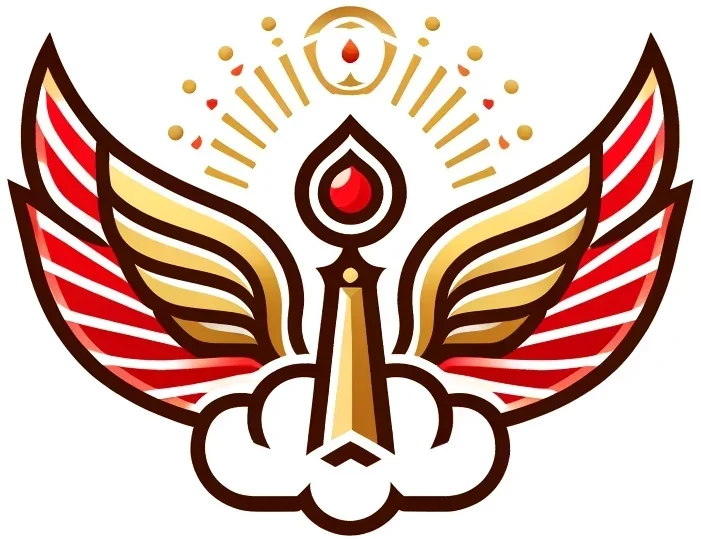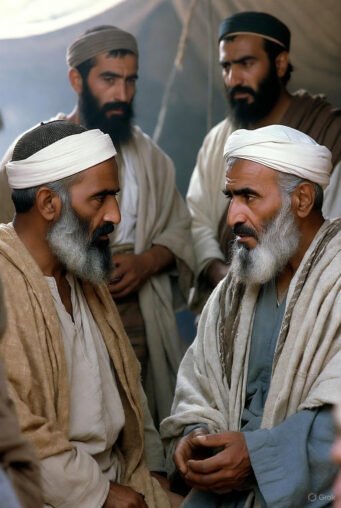“The Greeks did not invent wisdom. They borrowed it from the fire.” — Adapted from Plutarch, On Isis and Osiris 46
The Eastern Flame in Western Thought
For millennia, the West has celebrated Greece as the cradle of philosophy — the birthplace of reason, ethics, and cosmic inquiry. But the evidence — from ancient historians like Herodotus to modern scholars like Peter Kingsley — tells a different story. The Magi, Zoroastrian priests of ancient Persia, were the true teachers. Pythagoras studied with them for 18 years. Plato’s Academy hosted Persian magi. Aristotle’s “Prime Mover” echoes Ahura Mazda.
This is not coincidence. It is transmission. Zoroastrianism’s dualism (Asha vs. Druj), cosmology, and ethical framework flowed west via the Magi, shaping the Presocratics and enduring in Plato’s Forms and Aristotle’s logic. The Greeks acknowledged it — until they didn’t.
This article expands eFireTemple’s “The Origins of Greek Thought” series, drawing on primary sources (Herodotus, Diogenes Laertius) and scholarly consensus (Kingsley 1995, Boyce 1979). The fire lit in Airyanem Vaejah burned bright in Athens — and still does.
1. The Magi: Persian Priests, Universal Teachers
The Magi were not mystics or charlatans. They were Zoroastrian priests — athravan — hereditary guardians of the Avesta, masters of astronomy, mathematics, and ethics. Herodotus describes them as “the wise men of the Persians” who interpreted dreams and omens (Histories 1.101). Their teachings? Asha (cosmic truth/order) vs. Druj (lie/chaos), free will, resurrection, and a moral universe — concepts codified in Zoroaster’s Gathas (~1500–1000 BCE).
By the 6th century BCE, Persian conquests (Cyrus the Great) brought Magi to Babylon, where Greek travelers encountered them. Pliny the Elder laments: “Zoroaster… gave the Greeks not only a lust for magic, but madness for it” (Natural History 30.2.8). Not madness — method.
2. Pythagoras: The First Pupil (570–495 BCE)
Pythagoras of Samos didn’t invent the theorem or reincarnation. He imported them from the Magi.
| Pythagorean Concept | Zoroastrian Parallel | Evidence |
|---|---|---|
| Reincarnation | Frashokereti (soul renewal) | Diogenes Laertius: Pythagoras “learned from the Magi” reincarnation as soul migration (Lives 8.3). Parallels Yasna 30.7: souls return perfected. |
| Mathematics as Sacred | Asha as cosmic order | Herodotus: Pythagoras studied Magi “sacred rites” in Babylon (Histories 3.129). Guthrie: Pythagoras adopted Persian number mysticism (Pythagorean Sourcebook, 1988). |
| Vegetarianism & Purity | Humata, Hukhta, Hvarshta (ethical triad) | Riedweg: Pythagoras’ taboos mirror Magi purity laws (Pythagoras, 2005). |
Scholarly Confirmation: Kingsley (1995) in Journal of the Royal Asiatic Society: “Pythagoras’ journey to Persia… direct Magi transmission.” Boyce (1979): Magi “taught Pythagoras the doctrine of metempsychosis.”
Unraveled Truth: Pythagoras returned to Greece as a “barbarian philosopher” — a Persian student rebranded as Greek genius.
3. Heraclitus: The Flame of Dualism (c. 500 BCE)
Heraclitus of Ephesus — near Persian borders — channeled Zoroastrian fire.
| Heraclitean Idea | Zoroastrian Root | Evidence |
|---|---|---|
| Logos = Cosmic Order | Asha (truth/order) | Heraclitus Fragment 1: “All things come to pass in accordance with this Logos.” West (1971): “Heraclitus’ Logos = Zoroastrian Asha.” |
| Eris (Strife) as Harmony | Asha vs. Druj | Fragment 80: “War is father of all.” Parallels Yasna 30:9 — cosmic battle as renewal. |
| Fire as Divine | Atar (sacred fire) | Fragment 30: “This world… is an ever-living fire.” Honderich (1995): Heraclitus drew from “barbarian philosophy” (Zoroastrian). |
Unraveled Truth: Ephesus’ proximity to Persia made Heraclitus a de facto Magi disciple. Preus (1987): “Heraclitus’ prophetic tone = Zoroaster.”
4. Plato: The Academy’s Persian Guests (428–348 BCE)
Plato’s Academy was no isolated ivory tower. It hosted Magi.
| Platonic Concept | Zoroastrian Source | Evidence |
|---|---|---|
| Theory of Forms | Asha (eternal truths) | Timaeus 29a: “The Good = source of order.” Chroust (1980): “Plato’s universals = Zoroastrian Amesha Spentas.” |
| Soul’s Journey | Chinvat Bridge | Phaedo 107c: Souls judged post-death. Kingsley (1995): “Plato’s otherworldly journey = Magi vision quest.” |
| Dualism in Republic | Asha vs. Druj | Republic 514a: Cave = illusion vs. truth. Panousi (1995): “Plato’s cave = Zoroastrian soul trial.” |
Academy’s Magi Guests: Philip of Opus (Plato’s associate) dated Zoroaster to 6th cent BCE via Magi (Kingsley, Bulletin SOAS 1990). Plutarch: “Plato followed Zoroaster” (On Isis 47).
Unraveled Truth: Plato’s “barbarian philosophy” = Zoroastrian import. De Jong (1997): “Greek constructions of Zoroaster = direct Magi influence.”
5. Aristotle: The Prime Mover = Ahura Mazda (384–322 BCE)
Aristotle, Plato’s student, refined Persian cosmology.
| Aristotelian Idea | Zoroastrian Parallel | Evidence |
|---|---|---|
| Prime Mover | Ahura Mazda (unmoved creator) | Metaphysics 1072b: “First cause of motion.” Riedweg (2005): Aristotle’s tutor = Persian exile. |
| Ethics as Order | Humata, Hukhta, Hvarshta | Nicomachean Ethics 1.6: “Good as final cause.” Chroust (1980): “Aristotle’s eudaimonia = Zoroastrian Ashavan.” |
Unraveled Truth: Aristotle’s Babylon studies = Magi exposure. Livingstone (2011): “Magian thought in Aristotle’s unmoved mover.”
6. Alexander: The Conqueror Who Kept the Teachers
Alexander burned Persepolis (330 BCE) but retained Magi advisors (Arrian, Anabasis 3.18). Strabo: Greeks adopted Persian science (Geography 15.1).
Unraveled Truth: Destruction preserved the flame — Alexander’s empire spread Zoroastrian ideas to Greece.
The Chain: Persia → Greece → West
| Era | Transmission | Legacy |
|---|---|---|
| 1500–1000 BCE | Zoroaster’s Gathas | Asha, dualism |
| 6th–4th BCE | Magi teach Pythagoras/Plato | Forms, Logos |
| 4th–1st BCE | Alexander spreads texts | Stoicism, Neoplatonism |
| Today | 2.5B use “philosophy” | Unacknowledged Persian root |
Conclusion: The Flame in the Academy
The Magi Migration wasn’t migration — it was ignition. Zoroastrian fire lit Greek minds, birthing philosophy. The West forgot the source, but the light endures.
Asha prevails.
References
- Herodotus. Histories 3.129. Harvard UP, 1920.
- Diogenes Laertius. Lives 8.3. Loeb, 1925.
- Avesta, Yasna 30.7. Mills trans., 1887.
- Plato. Timaeus 29a. Jowett trans.
- Plato. Republic 514a. Jowett.
- Plato. Phaedo 107c. Jowett.
- Plutarch. On Isis 47. Babbitt trans., Loeb, 1936.
- Oxford Classical Dictionary, 4th ed. “Magi.”
- Herodotus. Histories 1.101.
- Xenophon. Memorabilia 4.2.24.
- Avesta, Yasna 31.
- Diogenes Laertius. Lives 2.45.
- Aristotle. Metaphysics 1072b. Ross trans.
- Aristotle. Nicomachean Ethics 1.6. Ross.
- Arrian. Anabasis 3.18.
- Strabo. Geography 15.1.

